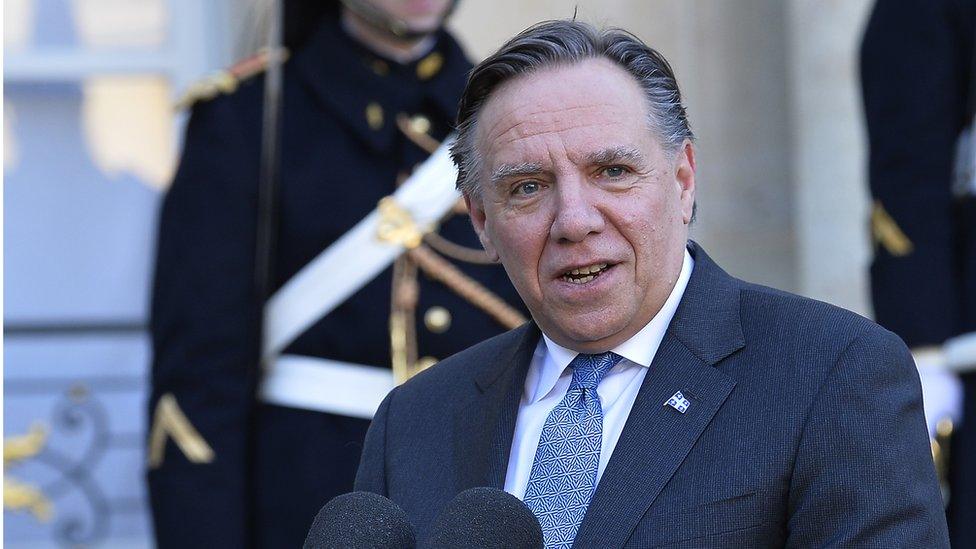Quebec passes religious symbols secularism bill
- Published
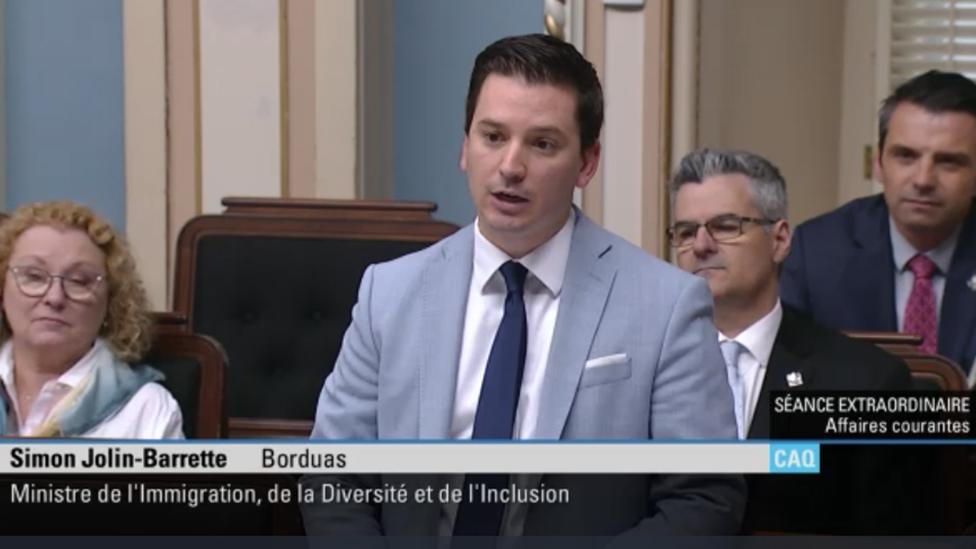
Quebec Immigration Minister Simon Jolin-Barrette championed Bill 21
A Canadian province has passed legislation that would bar civil servants in positions of "authority" from wearing religious symbols at work.
The Coalition Avenir Quebec's (CAQ) bill covers judges, police officers, teachers and other public figures.
It prevents the wearing of symbols such as the kippah, turban or hijab at work.
Also passed was an immigration bill that scraps some 18,000 pending applications from skilled immigrants, affecting some 50,000 people.
That controversial move is part of an immigration programme overhaul the government says will help the province meet labour market needs and improve the integration of newcomers.
The secularism bill in particular has sparked protests and debate in the province since its introduction.
It was passed late on Sunday night following a rare weekend sitting at the Quebec provincial legislature.
Existing employees will be exempt from the bill.
The centre-right CAQ was elected last autumn in part on pledges to restrict immigration and to bring in secularism legislation.
The bill does not mention any specific religion and would include symbols worn by a person of any faith, including Christian.
Still, critics argue the legislation unfairly targets Muslim women in the province who wear hijabs or other head-coverings.
In an attempt to insulate the legislation from a legal battle, the CAQ pre-emptively included the "notwithstanding clause" in the bill.
That clause is part of the Constitution that allows the government to override "fundamental freedoms" of religion, expression, and association; the right to life, liberty and security of the person; and freedom from discrimination - essentially an opt-out option that can be used for a five-year period.
The CAQ also included amendments to the bill that would help ensure enforcement of the new law.
Who has spoken out against the bill?
Canadian Prime Minister Justin Trudeau has said that he does not "think a lot of people feel that in a free society we should be legitimising discrimination of our citizens based on religion".
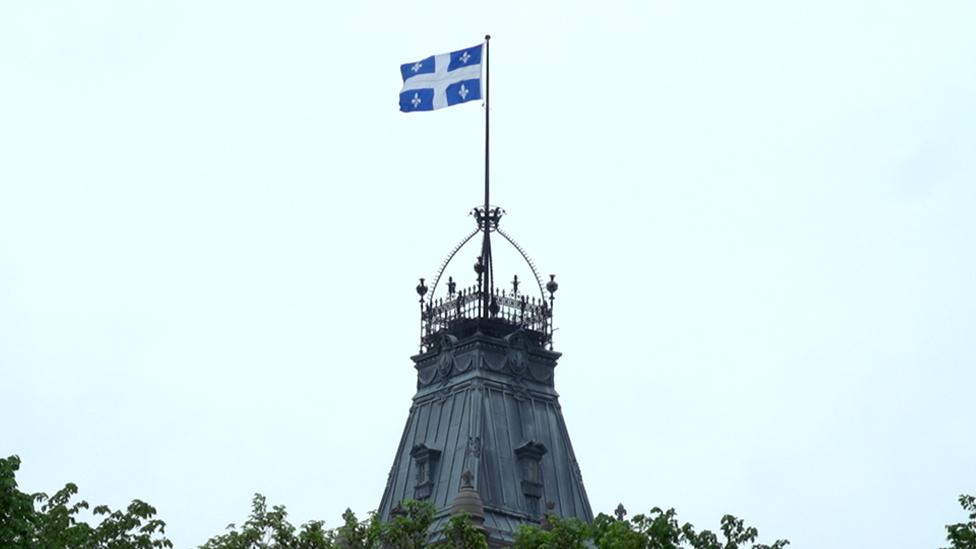
Quebec's National Assembly
Montreal, the largest city in the province, is where most immigrants to Quebec settle. In April, its city council unanimously voiced its opposition to Bill 21.
Religious groups and organisations like the National Council for Canadian Muslims, the Centre for Israel and Jewish Affairs, B'nai Brith, and the Anglican dioceses of Quebec have come out in opposition, as have some school boards and unions.
The Centre for Israel and Jewish Affairs called Bill 21 "reckless", while the National Council of Canadian Muslims and the Canadian Civil Liberties Association announced a joint legal challenge against the bill.
Which groups are in favour of the bill?
Secularism, or laicite, organisations and their supporters have praised the law as a reasonable step towards enshrining the separation or Church and state in Quebec.
Allow X content?
This article contains content provided by X. We ask for your permission before anything is loaded, as they may be using cookies and other technologies. You may want to read X’s cookie policy, external and privacy policy, external before accepting. To view this content choose ‘accept and continue’.

Besides the governing CAQ, two political parties - the provincial Parti Quebecois and the federal Bloc Quebecois - also support Bill 21.
Numerous opinion polls have also indicated that about two-thirds of Quebec residents support a religious symbols ban in some form.
Is this a first for Quebec?
The debate over secularism has played a significant role in the province's public discourse for over a decade, and this is not the first attempt by a Quebec political party to bring in related legislation.
In 2014, the Parti Quebecois proposed a so-called Charter of Values, legislation that would have barred public servants from wearing religious symbols and made it mandatory to have one's face uncovered when providing or receiving a government service.
In 2017, the provincial Liberals passed more narrowly focused legislation that barred people from wearing face coverings when giving or receiving a public service, which was quickly challenged in court and suspended by a Canadian judge a year ago.
- Published12 October 2018
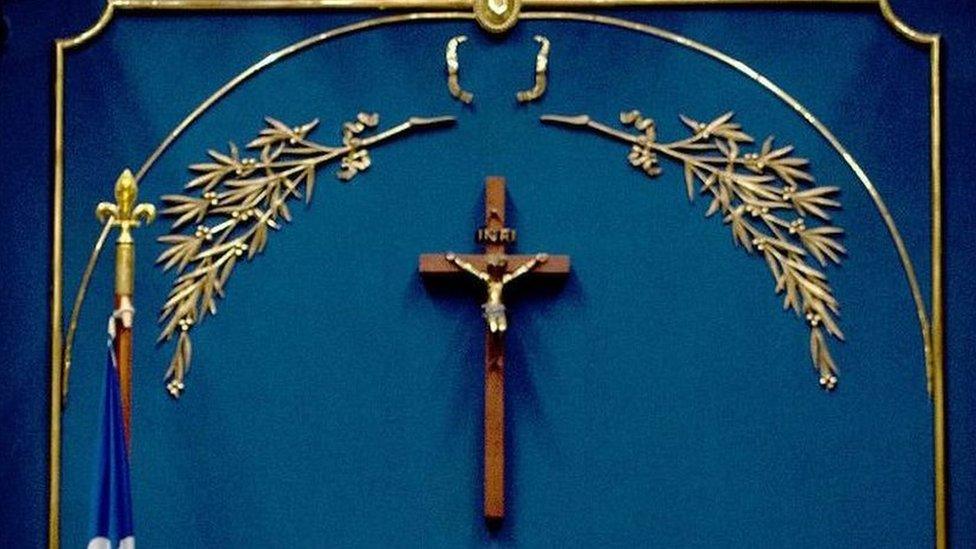
- Published13 April 2018
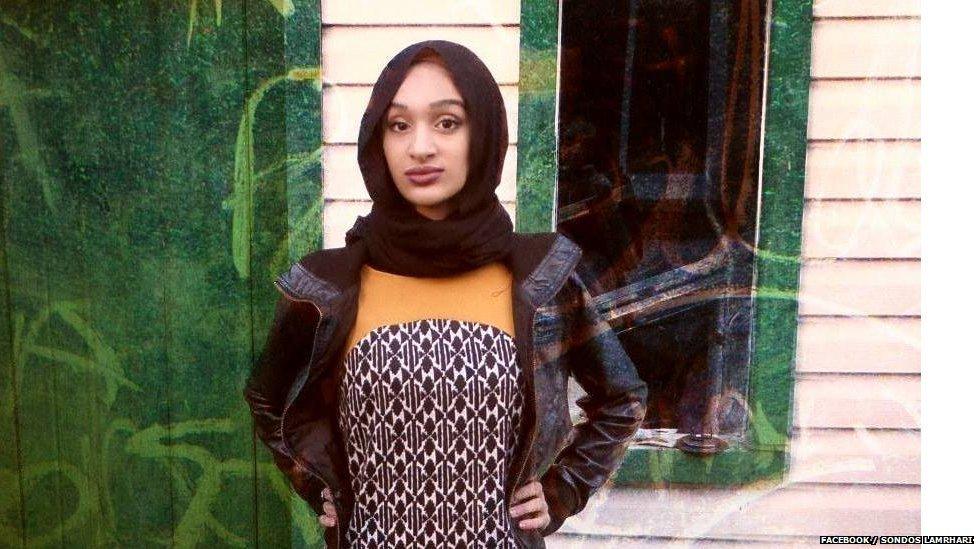
- Published28 March 2019
